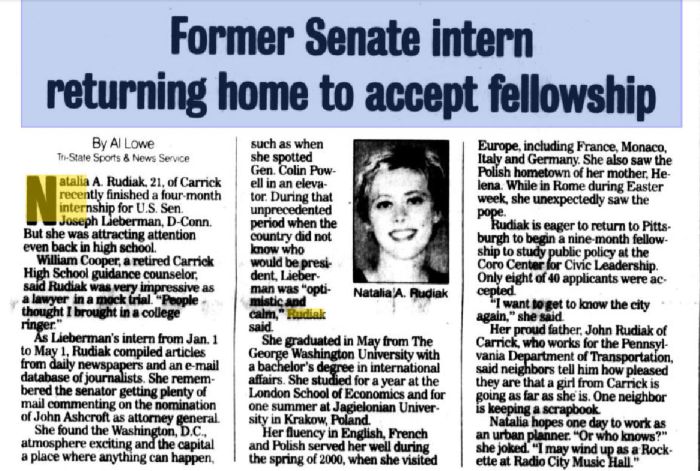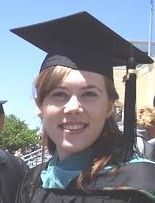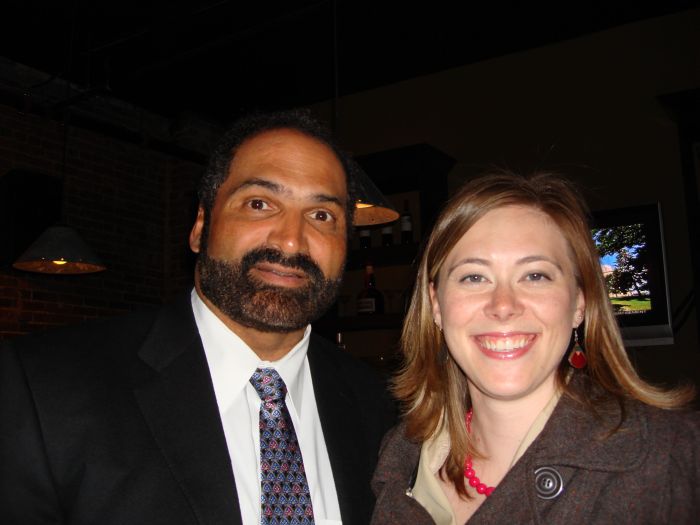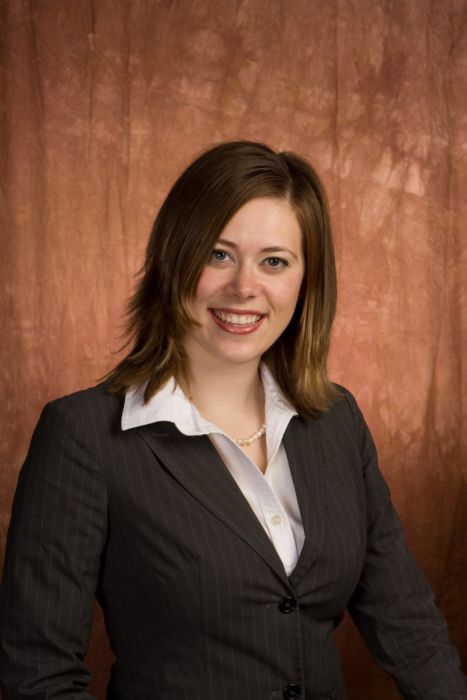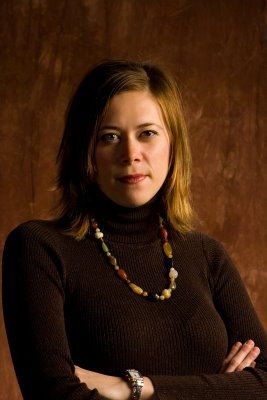Rudiak, Natalia A
Contents
- 1 Natalia Rudiak attended Concord Elementary School, Sterrett Classical Academy and Carrick High School. In 1997 she was named Carrick High School's Senior of the year.
- 2 After graduating from Carrick High School she attended George Washington University and in her Junior year attended the London School of Economics in London, England. Natalia graduated with a BS degree in International Studies.
- 3 During her Senior year she interned for Senator Joseph Lieberman:
- 4 After her Coro Fellowship she spent a year organizing a symposium for an international womens group in Malasia and spent several months in Senegal teaching English.
- 5 Carrick resident wins Heinz School award
- 6 Franco Harris and Natalia at a recent 2008 Generation Obama event
- 7 Natalia Rudiak 2008
- 8 Natalia announces her campaign for District 4 City Council
- 9 Natalia addresses issues in District 4
- 10 Natalia's campaign video for City Council District 4
- 11 Natalia's Victory Speech, May 19, 2009
Natalia Rudiak attended Concord Elementary School, Sterrett Classical Academy and Carrick High School. In 1997 she was named Carrick High School's Senior of the year.
After graduating from Carrick High School she attended George Washington University and in her Junior year attended the London School of Economics in London, England. Natalia graduated with a BS degree in International Studies.
During her Senior year she interned for Senator Joseph Lieberman:
Pittsburgh Post-Gazette - Aug 8, 2001
After her Coro Fellowship she spent a year organizing a symposium for an international womens group in Malasia and spent several months in Senegal teaching English.
Pittsburgh Post-Gazette Article
The Gap Year: More students broaden their experience of the world Sunday, June 03, 2007
By Mackenzie Carpenter, Pittsburgh Post-Gazette
Go sea kayaking in the Sea of Cortez, picking up leadership skills along the way. Explore historic villages on the Germany-Poland border while becoming fluent in German. Soak up Japanese traditions for a year while teaching English as a second language, or live in Senegal, West Africa, learning about Muslim culture.
We're not parroting a travel brochure here, just listing how several recent Pittsburgh-area high school graduates spent the year between high school and college -- or, in one case, the year after graduating from college and plunging into the job market -- as a way of figuring out what to do with their lives.
The British call it the "gap year," and while it's been a staple of upper-class life in that country -- Prince William spent a year in the Army in Belize and volunteering in southern Chile; Prince Harry spent his in Australia and then in Africa, where he worked in an orphanage. And within the Jewish community, Israel is a frequent destination after high school and before college.
Today, though, more and more students in the United States across the socio-economic spectrum are opting to take a break from the competitive treadmill of their high school years to travel, volunteer or work before entering college. Some of them use the time to burnish their resumes so they can reapply to a college that might have rejected them previously, while others want to immerse themselves in another culture altogether. Others need to make money, and still others just want time to think.
While no statistics are available, colleges are seeing signs of a definite trend.
"Are there more students taking a year off first today than a decade ago? Yes," said Betsy Porter, director of admissions at the University of Pittsburgh. Students today "have more acceptable options, places to go, things to do that provide real value, and in some ways, the world has opened up even to 17- and 18-year-olds."
Ben Schweers, 22, explored the Mexican wilderness for three months in a program run by the National Outdoor Leadership School, which uses outdoor activities to teach leadership skills. After graduating at the top of his class at Mt. Lebanon High School, Mr. Schweers had found himself spending the first two or three days at Ohio's College of Wooster in the fall of 2002 "wondering why I was there. It wasn't that Wooster wasn't the place for me, but college wasn't where I thought I should be."
Luckily, his parents were understanding, so after returning home, getting a job in a clothing store and volunteer coaching at his old high school, he enrolled in the outdoor leadership program, which was "life-changing" for him, said his mother, Merrily Schweers.
Besides fueling his interest in the environment, the rigorous but structured program, which included hiking, kayaking and sailing in Mexico's wilderness, allowed Mr. Schweers to hone his ability to lead small groups of people -- skills he'd never really had a chance to show in a classroom.
Another local student, Jacob Bryant of Highland Park, spent a summer in Japan before his senior year at Schenley High School and, then, after being accepted at Harvard, realized he wasn't ready to go to college.
Harvard didn't necessarily expect him to be ready, either: It sent him a response card that asked if he wanted to matriculate in fall of 2002 or the fall of 2003. Mr. Bryant returned to Japan for a year to teach English as a second language at a church-based school before heading to Cambridge, Mass.
It was an experience he wouldn't have traded for anything. Besides learning Japanese, which he'd studied since his middle school days at Frick International Studies Academy, "Personally, it made me more able to handle strange situations. I think if more college students had a broader perspective on the world and an eagerness to connect, that might be a healthy thing."
Gap years can be expensive, running as much as $10,000 to $12,000, along with extras like health insurance, immunizations and other medical costs.
But it's not an option only for the affluent. Mr. Bryant financed the trip himself by sending out fund-raising letters to members of his church, Bellefield Presbyterian, and raised $5,500 -- of which he spent only $3,500 by sharing living quarters in Yokohama (he donated the remainder of his money to the Japanese church). "It was not a glamorous life," he laughed. "I worked really hard, and I was kind of writing my own curriculum and teaching it at the same time."
Sometimes, the gap year comes after graduating from college and before choosing a career, as in the case of Natalia Rudiak, 27. A graduate of Carrick High School, Ms. Rudiak hit the ground running as a freshman at George Washington University, but after graduating in 2001, "I couldn't decide what I wanted to do."
After a nine-month public policy fellowship with the Coro Center for Civic Leadership in its Pittsburgh office, she went to New York City for a year to work for an international women's health organization.
Then, she went to live in Senegal for eight months.
"It was always something I wanted to do," Ms. Rudiak said. "When I was in college, I was around a lot of people who had lived in other countries, and I wanted to try it but wasn't sure what the focus should be."
After doing some research, she discovered a program that placed Americans as English teachers overseas and, after raising $2,500 from family and friends, soon found herself in West Africa as a teacher's assistant in a Senegalese American bilingual school.
"I wanted to work in international development, but while I was there, shortly after 9/11, I had an epiphany. I realized that if I wanted to make changes in the world, I'd have to contribute to making changes at home first," said Ms. Rudiak, who went on to get her graduate degree from the Heinz School of Public Policy at Carnegie Mellon University and is currently working at Deloitte Consulting LLP.
She also noted that while studying abroad her junior year at the London School of Economics, "almost everyone had done a gap year or something like that. Even my roommate, who came from a blue-collar background, managed to scrape some money together and travel around India before going back to school."
Still, taking time off has its pitfalls, Mr. Bryant noted. After a year spent in the real world, that "made it harder to go back into academia. At Harvard, I felt like I was out of the rhythm of studying, so maybe, for some people, there is something valuable about going right into college."
Indeed, noted Ms. Porter, a "gap year" is "not a universal answer for every student. Some kids are just emotionally ready to move from high school to college, and like to move in lockstep with the friends they make their freshman year."
There haven't been a lot of studies on the impact of delaying entry into college, but in the 1990s, researchers at the National Center for Education Statistics found it can decrease a student's chances of completing a degree.
But Holly Bull, who heads the Center for Interim Programs, a consulting service that helped place Mr. Schweers and other students in "gap year" programs, said that there are just as many studies showing that recent high school graduates need more time to mature.
"It's a feverish process getting into college and when they do get in, they often don't have a sense of what to focus on," she said, adding that often "what you see the first year in college are kids floundering around, changing majors, trying to fit in, drinking. Freshman year can be an expensive party."
Her company, based in Cambridge, Mass., and Princeton, N.J., has access to thousands of unusual programs all over the world, from the healing arts to social services, from volunteering at a Mexican orphanage to construction projects in Tibet.
In Mr. Schweers' case, after coming home to Mt. Lebanon and working a summer job as a landscape assistant, he applied to Skidmore College, where he graduated with a degree in environmental studies several weeks ago. He was recently selected from among more than 1,000 applicants to be one of 25 paid interns with GreenCorps, the nationally acclaimed Field School for Environmental Organizing.
Both he and his parents believe that his experience at an outdoor leadership school played a significant role in determining where he is today.
"It made me more comfortable with that transition into college, which is often very rocky, and made me more comfortable with myself."
First published on June 1, 2007 at 1:04 pm
Mackenzie Carpenter can be reached at mcarpenter@post-gazette.com or 412-263-1949.
As published in the South Pittsburgh Reporter, Sunday, JUL 06, 2008:
Carrick resident wins Heinz School award
Natalia A. Rudiak
On May 21, 2006, the Carnegie Mellon University H. John Heinz III School of Public Policy and Management held the 34th commencement ceremony in Oakland, where Natalia A. Rudiak of Carrick received a Master of Science Degree, with Distinction, in Public Policy and Management (MSPPM).
Ms. Rudiak was nominated by her colleagues to receive the 2006 Barbara Jenkins Award. The award is given in memory of Barbara Jenkins (MS 1987) to a graduating student who has demonstrated service to the Heinz School and made significant contributions to the quality of life for the residents in Pittsburgh.
Her colleagues and professors noted Ms. Rudiak’s involvement in “Run Baby Run,” a campaign to recruit female political candidates in Southwestern Pennsylvania. (According to the DC-based Institute for Women’s Policy Research, Pennsylvania ranks 47th in female political participation among the United States, and until May 2006, the Southwestern Pennsylvania region had no female state representatives.)
She has organized youth-oriented voting initiatives for “Everyone Vote” and the League of Young Voters, as well as several social events and political forums at Carnegie Mellon University. She is also is co-creator of the Website www.iheartpgh.com. In the May 2006 primary election, Ms. Rudiak was elected to the 29th Ward Democratic Committee.
The Heinz School is known internationally for its educational curriculum and research. According to their Website, the school’s purpose is to “understand the causes of critical social problems and to train men and women through masters and doctoral programs to use new knowledge and technology to bring about positive change.”
The program emphasizes economics, statistics, information science, and organizational behavior to study how public policies affect society. Heinz strives to support “intelligent action” in non-profit, public, and private organizations, and counts 5,000 graduates from all over the United States and the world.
In the fall, Ms. Rudiak will begin employment with Deloitte Consulting, where she will work to improve the efficacy and efficiency of public institutions and governments.
She is the daughter of John and Helena Rudiak of Carrick, and the granddaughter of the late Joseph and Regina Rudiak of the South Side, and Lucyna and the late Dionizy Kusiolek of Przyjma, Poland. She plans to stay in Carrick.
Franco Harris and Natalia at a recent 2008 Generation Obama event
Natalia Rudiak 2008
Natalia announces her campaign for District 4 City Council
Natalia addresses issues in District 4
Natalia's campaign video for City Council District 4
